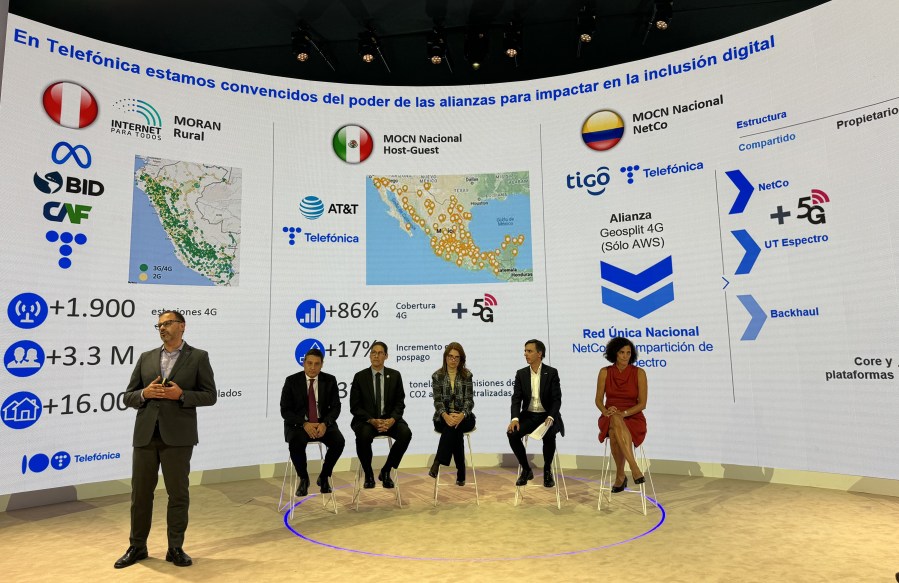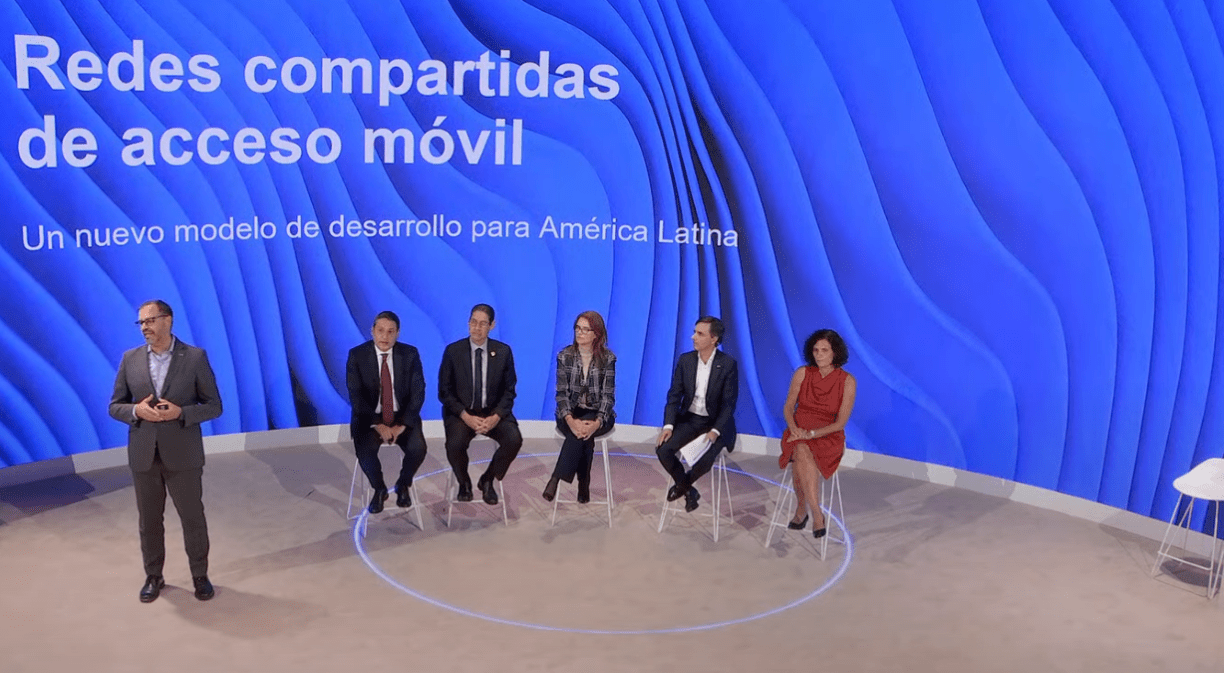The Latin American reality presents unique challenges in terms of access to mobile connectivity. There is still a digital imbalance between urban and rural areas, which is a significant barrier to inclusive and equitable development in the region. This is something that we need to address through cooperation between traditional and non-traditional players in the digital ecosystem through innovative solutions.
At Mobile World Congress 2024, Telefónica Hispanoamérica reaffirmed its commitment to network sharing as the key to digital development in the region. The panel “Mobile network sharing: A new development model for Latin America“, which was led and moderated by Alfonso Gómez Palacio, CEO Telefónica Hispam, highlighted the importance of agreements in this area to bridge the digital gap. The meeting featured high-level speakers such as the Colombian Minister of Telecommunications, Mauricio Lizcano, and the Ecuadorian Minister of Telecommunications, César Martín.

Strategic Partnerships: A Driver of Innovation
The signing on 26 February of a framework agreement between Tigo and Movistar in Colombia to develop a unified mobile access network, following the fulfilment of all regulatory and corporate requirements, underlines Telefónica’s commitment to disruptive models that help bridge the digital gap. These strategic alliances allow companies to reduce operating costs, optimise infrastructure investments, improve quality and accelerate the deployment of mobile services, even in underserved areas.
Key to this collaboration is the ability of the companies to maintain their operational independence while sharing physical resources. This means that while sharing network infrastructure, each operator continues to compete on service and price. This duality allows for greater efficiency without compromising competition in the market.
Minister Mauricio Lizcano in this regard stated that, in Colombia, one way to solve the problems is infrastructure sharing. They want stronger operators competing for the benefit of users, and the infrastructure sharing agreement is a step in that direction.
For his part, Minister César Martín stressed that one of the objectives in Ecuador is economic development and reactivation, aware that this must go hand in hand with technology and the importance of the sector as a lever for development. In this context, he assured that sharing is essential to help operators optimise deployment and coverage costs.
Challenges and Opportunities in the Sector
We cannot ignore the macro-economic context of our region and its impact on revenues. Economic pressures and the need to improve the coverage and quality of mobile services make it imperative to explore new collaborative models. Infrastructure sharing, both passive and active, is emerging as a solution to increase efficiency and competition in the sector, benefiting users and helping to bridge the digital gap.
The cost reductions associated with infrastructure sharing not only benefit telecommunications companies, but also translate into more affordable services for consumers.
In addition, by sharing physical assets such as towers and networks, the companies work together to optimise resources and improve quality of services offered.
Promoting Digital Inclusion for a Connected Future
Telefónica Hispanoamérica is committed not only to network sharing, such as this operation and other alliances, but also to projects such as Internet para Todos (IPT) aimed at serving rural areas in Peru. This project expands access and overcomes geographic barriers to connectivity, an approach we intend to replicate in other countries. This network-neutral wholesale initiative is key to extending mobile services to previously inaccessible communities and bridging the digital gap in a sustainable way, as Teresa Gomes, CEO of IPT, told the panel.
With strategic partnerships, innovative models and a firm commitment to digital inclusion, Telefónica Hispanoamérica continues to lead the way towards a connected future for all in the region. Network sharing not only drives economic and social development, but is also the backbone to ensure that no one is left behind in the digital age.











